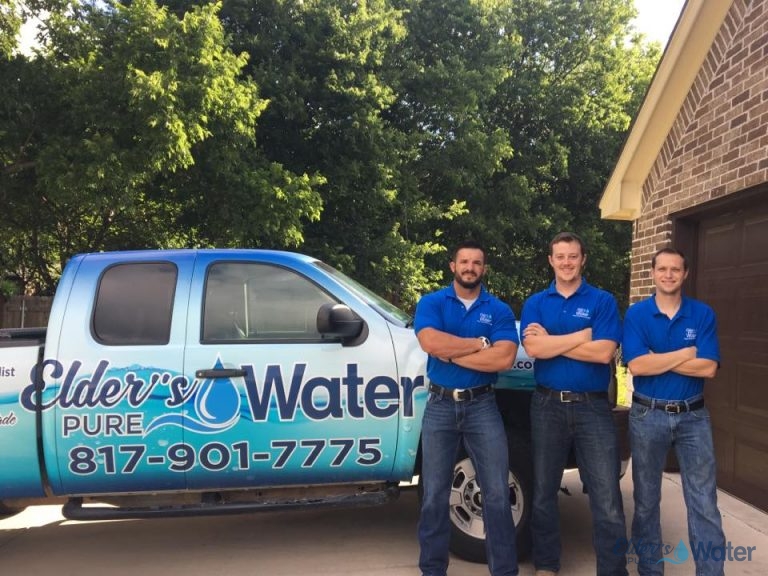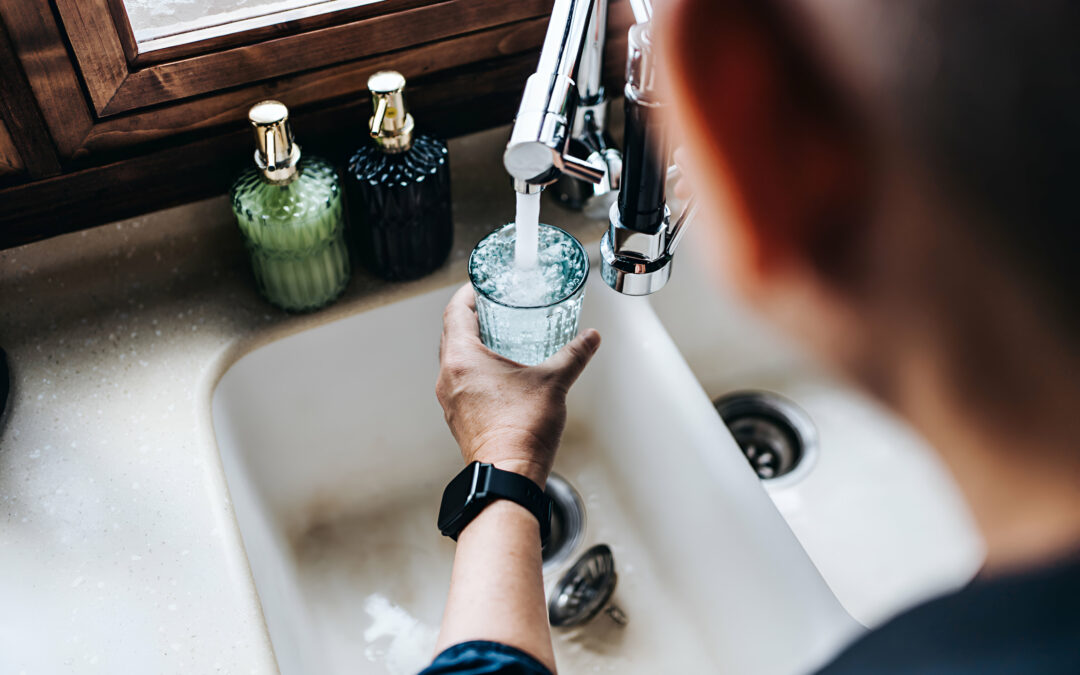Water Quality Effects More Than Your Health
Why Choose a Water Treatment Professional

However, one important thing to consider is that public water utilities are not required to monitor the standards of the pipes that bring this water into our homes. This means that water can meet a specific standard when it leaves the public water system but still has the potential to carry contaminants with it when it reaches your faucet.
Unregulated Water Contaminants
Another thing to consider is that, as noted by the EPA, other suspected contaminants in our water are only monitored. These contaminants are not yet regulated.
It’s vital to seek the advice of a water treatment professional because they will know about specific water contaminants in your area and can make recommendations for the type of water testing that is best for your home and family. They’ll also be able to suggest the best course of treatment based on the test results of your water.

What to Consider if You Are a Private Well Owner
The National Ground Water Association (NGWA) recommends that if you consume or use water from a private well you test your water a minimum of once per year for contaminants such as nitrates and bacteria as well as any known local contaminants. The NGWA also makes suggestions for when regular testing of your private water supply should be done more often.
Well Water Quality Changes Over Time
The quality of the water in your well can change over time. This can depend on multiple factors like how you utilize your property, changes in weather patterns, and seasonal impacts on your well. Consistent testing helps you to stay aware of potential fluctuations in the quality of your water. This testing can also help you discover potential issues early, helping to prevent health issues and worsening contamination. It can also reveal the need for well rehabilitation or maintenance or issues with your existing water treatment system.
Prolonging the Life of Your Well Water Supply
All of this prolongs the quality of your well water supply. Changes to your well water quality could indicate the need to change the settings of your current softening or water treatment system. It may also indicate that filters need to be replaced more or less often and also identify any other needed maintenance. An expert will be able to fine-tune your system to ensure that your family gets the best quality water possible.
Finding Local Water Quality Guidance
You can also ask your local county health department or call us at Elder’s Pure Water to get guidance about the type and frequency of testing recommended for your location and property utilization. Based on the results of your water test, it’s best to rely on the expertise of a water treatment professional to decide on the best way forward.

Your Water Should be an Experience
The state of your water is not only about the impact on your health. It also can affect your entire experience with it. Funny-tasting or smelling water can indicate poor water quality and can be caused by potential contamination from chlorine, organic matter, or dissolved minerals. It can also have an impact on the daily enjoyment of your water from taking a refreshing drink of water to enjoying a hot shower.
Elder’s Pure Water has the knowledge to treat your water to adjust for taste, odor, and appearance to make sure that it is safe but also that it lives up to your expectations.

Water’s Impact on Your Appliances and Fixtures
Limescale buildup in your home can be caused by hard water. This limescale buildup can significantly reduce the lifespan and impact the efficiency of your water-dependent appliances like your dishwasher and water heater. Elevated levels of iron and manganese can also create stains on your fixtures and laundry. A water test can quickly help you identify signs of hard water and elevated levels of iron and manganese.
Water Quality can Affect Hair and Skin
The damaging effects of hard water go beyond your appliances, fixtures, and laundry. Hard water buildup also impacts the health of your skin and hair. After a water treatment expert has determined the levels of hardness in your water, they can give you a customized recommendation to soften your water in a way that protects your skin and hair. An added benefit is the extended lifespan of soaps, lotions, and creams. You’ll spend less money to care for your skin because using soft water reduces hard water buildup on your skin and increases the effectiveness of these items.
Extend the Lifespan of Your Plumbing System
Certain contaminants in water have corrosive properties and can negatively impact your plumbing system. This can lead to failing systems and expensive repairs. Water treatment professionals know how to identify these corrosive qualities in water like high acidity and low pH and they can help you implement an effective solution to preserve the lifespan of plumbing and fixtures in your home and prevent long-term damage.

An In-Depth Water Analysis vs. A Basic Water Test
There are differences between an in-depth water analysis and a basic water test. Your local water expert will be able to help you determine which one is best for your home and family by considering known qualities and specific contaminants of the water in Dallas Fort Worth Westoplex area. They’ll know about unique chemicals and bacteria that can fluctuate by specific area. At Elder’s Pure Water, we lean on our years of experience and guidance from our local health department when making recommendations to homeowners on water testing. Once the type of water test is determined, a professional is also able to ensure that the sample is collected properly.
What is a Basic Water Test
A basic water test will vary from area to area. At Elder’s Pure Water, our free basic water test assesses fundamental qualities like hardness, iron, pH, chlorine, and TDS (total dissolved solids). This basic test is a great starting point and can give you a basic understanding of the quality of your water. Even if you already know you have hard water, anyone installing equipment will still need to test the hardness levels.

What is an In-Depth Water Analysis
An in-depth water analysis is much more extensive. This type of test assesses a wider variety of potential contaminants, including PFAS, bacteria, arsenic, heavy metals, volatile organic compounds, pesticides, and more.
A water treatment expert will be able to help you decide if this type of in-depth analysis is necessary. This type of comprehensive water analysis has to be completed by a certified laboratory and provides detailed information about the anatomy of the water in your home. This detailed analysis will come at an additional cost, but the information that it can provide can often be invaluable.

Expertise You Can Trust
When it comes to testing your water, it doesn’t matter if you get your water from a public source or a private well. What does matter is that you choose a trusted water treatment professional to collect and test your water. This is a vital step to ensure safe, clean, and healthy water in your home.
At Elder’s Pure Water, we can help you make the well-being of your family a priority while also helping you preserve the appliances and plumbing in your home. Quality, safe water is crucial for maintaining public health and creating healthy families and homes.
Contact Elder’s Pure Water Today
We’ve been providing quality service to the Dallas Fort Worth Westoplex community for over 8. Our intricate relationship with the local water supply makes us a comfortable choice. Call us today at 817-631-4967 to schedule your free water test and take the first step toward a healthier, happier home and safe, clean water.

